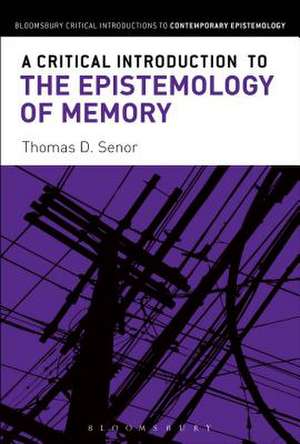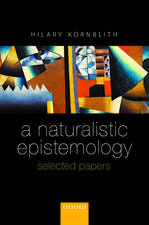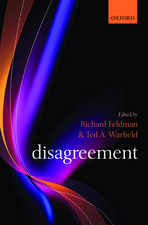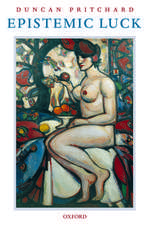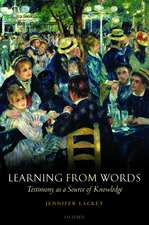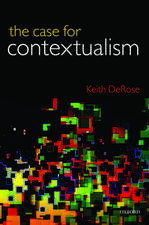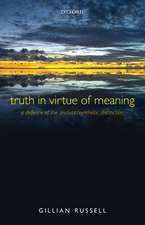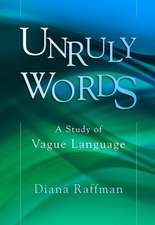A Critical Introduction to the Epistemology of Memory: Bloomsbury Critical Introductions to Contemporary Epistemology
Autor Thomas D. Senoren Limba Engleză Hardback – 20 mar 2019
| Toate formatele și edițiile | Preț | Express |
|---|---|---|
| Paperback (1) | 176.86 lei 6-8 săpt. | |
| Bloomsbury Publishing – 20 mar 2019 | 176.86 lei 6-8 săpt. | |
| Hardback (1) | 537.30 lei 6-8 săpt. | |
| Bloomsbury Publishing – 20 mar 2019 | 537.30 lei 6-8 săpt. |
Preț: 537.30 lei
Preț vechi: 624.76 lei
-14% Nou
Puncte Express: 806
Preț estimativ în valută:
102.81€ • 107.63$ • 85.07£
102.81€ • 107.63$ • 85.07£
Carte tipărită la comandă
Livrare economică 07-21 aprilie
Preluare comenzi: 021 569.72.76
Specificații
ISBN-13: 9781472526076
ISBN-10: 1472526074
Pagini: 192
Dimensiuni: 138 x 216 mm
Greutate: 0.37 kg
Editura: Bloomsbury Publishing
Colecția Bloomsbury Academic
Seria Bloomsbury Critical Introductions to Contemporary Epistemology
Locul publicării:London, United Kingdom
ISBN-10: 1472526074
Pagini: 192
Dimensiuni: 138 x 216 mm
Greutate: 0.37 kg
Editura: Bloomsbury Publishing
Colecția Bloomsbury Academic
Seria Bloomsbury Critical Introductions to Contemporary Epistemology
Locul publicării:London, United Kingdom
Caracteristici
Includes recent work in the psychology of memory, cognitive science as well as standard positions in contemporary epistemology
Notă biografică
Thomas D. Senor is Professor of Philosophy and Departmental Chair at the University of Arkansas, USA.
Cuprins
Introduction1. Harman's Argument for Epistemic ConservatismStudy QuestionsFurther Reading2. McGrath's Defense of ConservatismStudy QuestionsFurther Reading3. EvidentialismStudy QuestionsFurther Reading4. FoundationalismStudy QuestionsFurther Reading5. Preservationism and ReliabilismStudy QuestionsFurther ReadingBibliographyIndex
Recenzii
This is a must-read for everyone with an interest in the epistemology of memory. Employing admirably clear prose, Senor does a masterful job of presenting the leading accounts of the justification of memory belief in an accessible manner. The book is an important contribution to the philosophy of memory and will undoubtedly shape teaching and research in the area for many years to come.
Thomas Senor advances epistemology with a subtle but lucidly defended treatment of the nature of justified belief, centered on memory's role in belief formation and preservation. He pinpoints key problems, confronting such views as epistemic conservativism, foundationalism, and evidentialism, and finally pinpoints process reliabilism as the most defensible approach.
Thomas Senor advances epistemology with a subtle but lucidly defended treatment of the nature of justified belief, centered on memory's role in belief formation and preservation. He pinpoints key problems, confronting such views as epistemic conservativism, foundationalism, and evidentialism, and finally pinpoints process reliabilism as the most defensible approach.
